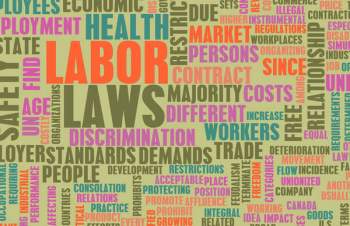
Unemployment Benefit Explained

Unemployment benefits are payments made by a state or another authorized body to assist individuals who are suffering from unemployment. Insurance benefits may be exchanged by a para-governmental insurance system.
The sums that are paid by unemployment benefits may be meager, and sufficient to cover only an individual's most basic needs, which means that it is a very basic from of welfare. However, unemployment benefits may also be paid in an amount that is proportional and commensurate to the salary that an individual was making before they became eligible for unemployment benefits. Unemployment benefits are usually considered a part of the larger social security benefits system.
The original federal laws which authorize the state or local government agency to administer unemployment insurance benefits were developed by President Franklin Delano Roosevelt as a response to the Great Depression in the 1930s. In response to the highest levels of unemployment in the history of the United States of America which were experienced during the Great Depression, President Roosevelt managed to get the Congress of the United States of America to pass the Wagner-Peyser Act in 1933 and the Social Security Act in 1935.
Outside of the United States of America, unemployment benefits may be distributed by trade or labor unions, under an arrangement that is known as the Ghent system.
NEXT: What Is The Focus of Unemployment Articles





















